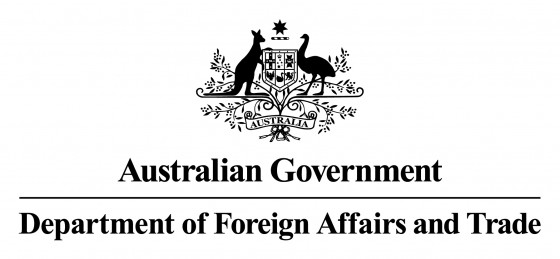
The Australian government has said it will not be officially represented in Armenia next month as the country marks the 100th anniversary the so-called “Armenian genocide”, a move that was interpreted as support to Turkey’s call to argue the 1915 incidents based on experts analyzing history archives.
The Department of Foreign Affairs and Trade told SBS that the Australian Government would not be sending a representative to Yerevan. The Department wouldn’t confirm whether Australia was invited to attend official events in Yerevan and no further comment was provided regarding the reason behind the decision.
Armenia has been lobbying around the world to attract high-profile attendees to the 100th anniversary of the “genocide” and Armenian President had sent formal invitation to a large number of world leaders.
Events in Yerevan will coincide with the centenary of the Anzac landing in Gallipoli, to which Australian Prime Minister Tony Abbott is expected to lead a high-level delegation, the Australian SBS reported. The Australian Department of Foreign Affairs and Trade told SBS the Australian government will not be sending a representative to Yerevan next month for the commemorations.
Norwegian Prime Minister Erna Solberg also recently announced that she will not be attending the commemorations in Yerevan, highlighting that Norway puts value on relations with Turkey.
Solber said that Norwegian executives, including herself and members of the Ministry of Foreign Affairs, will not be represented at the commemoration ceremonies and only the ambassador will be able to participate. According to a statement by the Norwegian Ministry of Foreign Affairs, “The genocide allegations, which were supposedly committed by the Ottoman Empire in 1915, are internationally disputed,” and that the ministry would state their opinion on the matter later on.
Baard Glad Pedersen, the undersecretary of the Norwegian Prime Minister’s Office, said that conclusions regarding historical incidents should be left for the discretion of historians and that U.N. resolutions outline what can be considered genocide or not. “This issue has been hotly debated in the recent years” Pedersen said.
Mertefe Bertinlioğlu, a deputy from the Norwegian Conservative Party in Oslo’s Provincial Legislature, said that Solberg’s decision must be respected, adding that Turkey has called for the opening of archives numerous times to enable historians to study and analyze the issue, but that Armenia had never accepted this. “I also agree that this issue should only be handled by historians and should not be exploited for political interests,” Bertinlioğlu said.
In 2014, Turkish President Recep Tayyip Erdoğan issued a letter expressing condolences for the 1915 events in an unprecedented move to set up an environment for reconciliation. Turkish officials consistently urge for the establishment of a joint historical commission to investigate the events and call on Armenia to open their archives as Turkey has done.
A number of attempts by Armenian lobby groups to achieve branding of the 1915 events as genocide in Australia have to date failed to get formal recognition after motions in New South Wales and South Australia moved by pro-Armenian MPs.
Australia Foreign Minister clarified on June 4, 2014 that Australian states and territories have no constitutional role in the formulation of the Australian foreign policy, and that Australia does not view the tragic events at the end of the Ottoman Empire as a genocide.
“While respecting the rights of individuals and groups to have strong views on the matter, the long-standing and clear approach of the Australian Government has been not to become involved in this sensitive debate, ” she wrote in a letter to Ertunc Ozen, President of Australian Turkish Advocacy Alliance (ATAA).
Armenia has lately increased its organized activities throughout the world for the recognition of their unfounded allegations in regard to the incidents of 1915 as “genocide” by national and local parliaments.
Armenia accuses the Ottoman authorities at that time of massacring large numbers of Armenians. Turkey rejects the claims, saying that 300,000 Armenians along with at least as many Turks died in civil strife that emerged when the Armenians took up arms for independence in eastern Anatolia.
Ankara’s attempts to resolve the issue has not so far get a concrete response from Yerevan.
In 2005, Turkey officially proposed the establishment of a joint commission comprised of historians and other experts from both sides to study the events of 1915, utilizing not only Turkish and Armenian archives, but also those of relevant third-party countries and to share their findings with the public.
Armenia has so far refused to open its archives or offer any documents while Turkey opened its own archives, and offered to give $20 million aid to the classification and opening of the Armenian archives in the U.S. city of Boston and several other places in the world for fair evaluation of the matter.
DailySabah/SBS/Editorial
